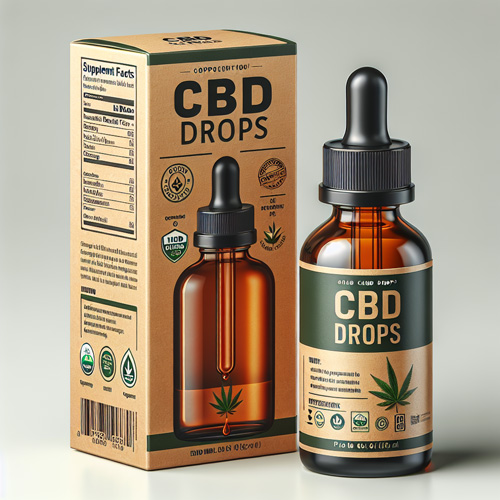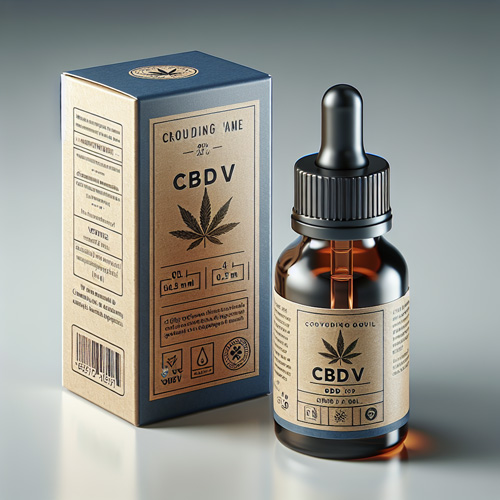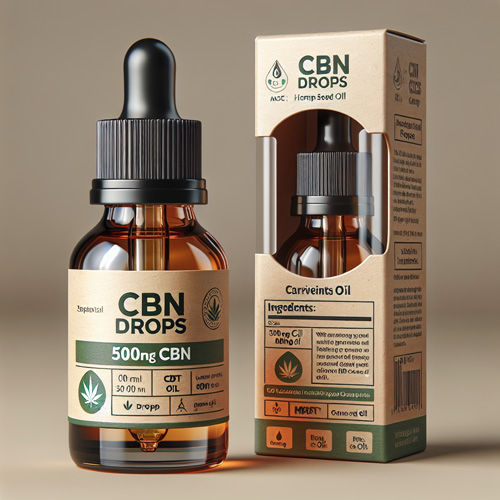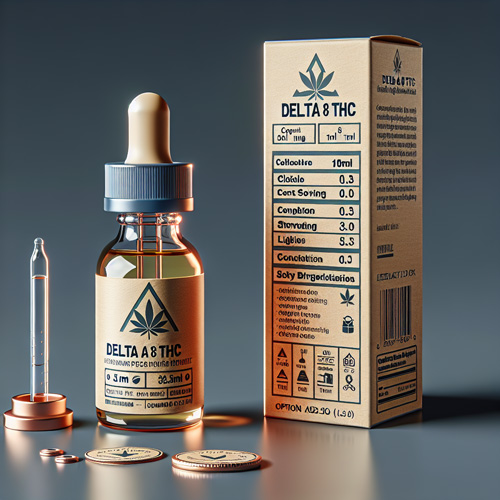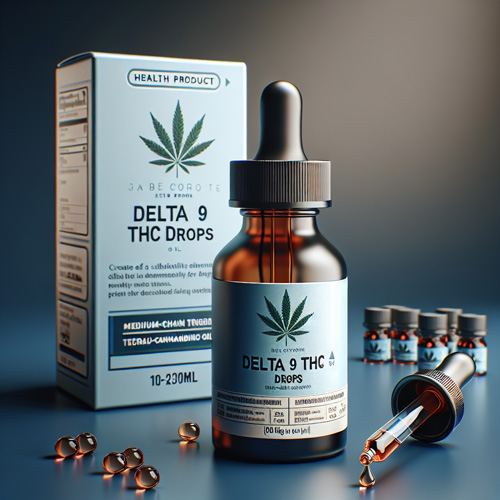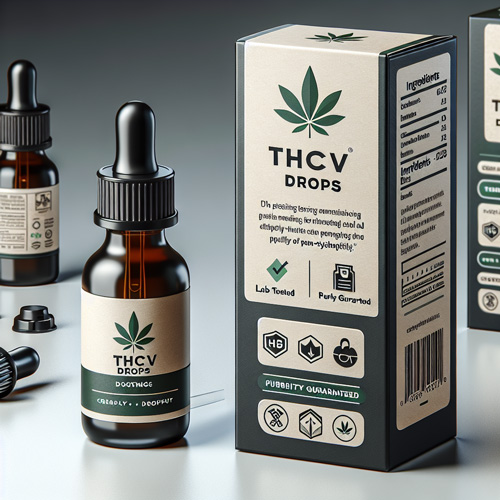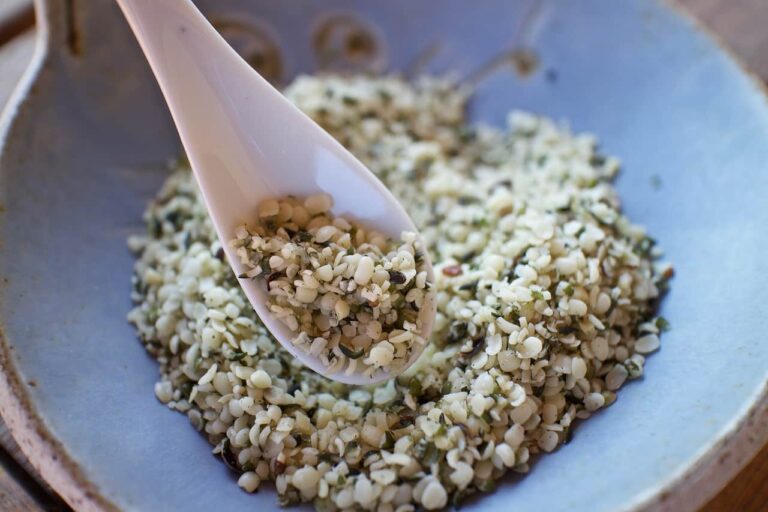
Is Hemp Milk Good For You? A Deep Dive
Hemp milk is a non-dairy alternative to traditional cow’s milk made from pulverized hemp seeds. To create this plant-based beverage, hemp seeds are blended with water and then strained to separate any solids. The resulting liquid is a creamy and white milk substitute.
One of the main characteristics of hemp milk is its rich, nutty flavor. This unique taste sets it apart from other non-dairy milk alternatives, giving it a distinct and enjoyable profile.
Hemp milk is also known for being dairy-free, making it suitable for those with lactose intolerance or milk allergies. Additionally, it is a great option for vegans or individuals who follow a plant-based diet.
What makes hemp milk nutritionally significant is its abundance of healthy fats, plant protein, vitamins, and minerals. It contains healthy fats, such as omega-3 and omega-6 fatty acids, which are essential for brain health and immune function. Moreover, it is a great source of plant-based protein, which is essential for building and repairing tissues.
In terms of vitamins and minerals, hemp milk is rich in vitamin E, which acts as an antioxidant and supports healthy skin. It also contains minerals like phosphorus, potassium, and magnesium, contributing to bone health and electrolyte balance.
Hemp milk offers a delicious dairy-free alternative that is packed with nutritional benefits. Its rich flavor, abundance of healthy fats, plant protein, vitamins, and minerals make it a great option for those looking to incorporate more plant-based foods into their diet.
What is hemp milk?
Hemp milk is derived from the seeds of the hemp plant, Cannabis sativa. The production process involves soaking and grinding the hemp seeds, then blending them with water and straining the mixture to obtain a smooth, creamy liquid.
One of the main benefits of hemp milk is that it is suitable for individuals who follow a dairy-free or vegan lifestyle. Moreover, it is naturally lactose-free, making it an excellent option for those with lactose intolerance.
Hemp milk possesses a rich nutty flavor, which is derived from the seeds themselves. This distinctive taste adds a unique dimension to various dishes, including smoothies, cereal, and baked goods. Additionally, the nutty flavor can complement both sweet and savory recipes.
In terms of nutritional composition, hemp milk is a powerhouse. It contains healthy fats, such as omega-3 and omega-6 fatty acids, which are essential for brain health and reducing inflammation. It is also rich in plant-based protein, making it an ideal choice for individuals looking to increase their protein intake.
Additionally, hemp milk is a good source of vitamins, including vitamin E, which acts as a powerful antioxidant, protecting cells from damage. It also contains minerals like calcium, iron, and magnesium that support bone health and overall well-being.
Despite being derived from the hemp plant, hemp milk typically does not contain significant amounts of cannabinoids, such as THC and CBD. Research indicates that these compounds are primarily found in the flowers and leaves of the plant, not the seeds used to produce hemp milk.
Process of making hemp milk
The process of making hemp milk starts with gathering the key ingredients: hemp seeds and hot water. Hemp seeds can be found in health food stores or ordered online. To make a basic hemp milk recipe, you will need 1 cup of hemp seeds and 4 cups of hot water.
Begin by adding the hemp seeds to a blender or food processor. Next, carefully pour the hot water over the seeds. The hot water helps to soften the seeds and release their natural oils. Let this mixture sit for a few minutes to allow the seeds to soak.
After soaking, blend the mixture on high speed for about 2-3 minutes. This process helps break down the seeds and create a smooth consistency. Once blended, strain the mixture through a fine mesh sieve or cheesecloth. The goal is to separate the liquid from the solid seed particles, creating a creamy and silky milk.
At this point, you have a basic hemp milk ready for consumption. However, if you want to customize the taste and texture of your hemp milk, you can add a few optional additives. Common additives include sweeteners like agave syrup or dates for a sweeter taste, vanilla extract for added flavor, or a pinch of salt to enhance the overall taste. Simply blend the milk with these additional ingredients to incorporate them. If you don’t add dates, syrup, honey, or maple syrup, you’ll have an unsweetened hemp milk, and it is still delicious!
Nutritional profile of hemp milk
Hemp milk is becoming increasingly popular as a plant-based alternative to dairy milk. Derived from the seeds of the hemp plant, hemp milk is not only lactose-free but also offers several nutritional benefits.
Packed with essential nutrients and fortified with additional vitamins and minerals, hemp milk serves as an excellent source of plant-based protein and omega-3 fatty acids. With its impressive nutritional profile, hemp milk is not only suitable for individuals with lactose intolerance or milk allergies but also for those looking to incorporate more plant-based options into their diet.
Let’s explore the various components that make up the nutritional profile of hemp milk and how it can contribute to a healthy lifestyle.
Essential amino acids
Essential amino acids play a crucial role in hemp milk due to their importance in the body. These amino acids are considered “essential” because the body cannot produce them on its own, so they must be obtained through diet. Hemp milk is a fantastic source of these vital nutrients.
The role of essential amino acids in the body is extensive. They are the building blocks of proteins, which are required for numerous bodily functions. They are involved in the synthesis of enzymes, hormones, and neurotransmitters. Each essential amino acid performs specific functions, contributing to overall health and well-being.
Hemp milk stands out among plant-based alternatives as one of the few complete proteins. A complete protein contains all nine essential amino acids required by the body. Most plant-based proteins lack one or more of these amino acids, making hemp milk an exceptional option for those following a vegetarian or vegan diet.
Consuming hemp milk with essential amino acids offers numerous benefits for overall health and development. These amino acids support muscle growth, maintenance, and repair, promoting healthy bones and preventing muscle wasting. They also contribute to a strong immune system, healthy hair, skin, and nails, as well as proper hormone regulation and neurotransmitter function.
Essential amino acids and their importance
Essential amino acids play a vital role in the human body due to their importance in various physiological functions. These amino acids serve as the building blocks of proteins that are required for the growth, maintenance, and repair of tissues.
There are nine essential amino acids that the body cannot produce on its own and must be obtained through diet. These include histidine, isoleucine, leucine, lysine, methionine, phenylalanine, threonine, tryptophan, and valine. Each of these amino acids has specific roles and functions in the body.
For instance, lysine aids in collagen production, which is essential for healthy skin and connective tissues. Methionine is involved in the synthesis of various molecules such as creatine, an important component of muscle tissue.
In addition to their structural role, essential amino acids also serve as precursors for neurotransmitters and other important molecules. Tryptophan, for example, is a precursor for serotonin, a neurotransmitter that regulates mood. Phenylalanine acts as a precursor for dopamine and norepinephrine, neurotransmitters that are involved in alertness and focus.
These amino acids are involved in numerous metabolic processes such as energy production, hormone regulation, and immune system function. Thus, ensuring an adequate intake of essential amino acids is crucial for maintaining optimal health and overall bodily functions.
Comparison of essential amino acid content in hemp milk vs. cow’s milk
Both hemp milk and cow’s milk contain these essential amino acids, but their composition may vary. By understanding the differences in the amino acid profiles of these two dairy alternatives, individuals can make informed choices regarding their dietary preferences and nutritional needs. This comparison will shed light on the potential benefits and limitations of hemp milk as a plant-based alternative to traditional cow’s milk.
Omega fatty acids
Omega fatty acids are essential for maintaining optimal health, especially when it comes to heart health and inflammation reduction. Omega-3 and omega-6 fatty acids are two types of polyunsaturated fats that play a crucial role in various bodily functions.
Omega-3 fatty acids, particularly DHA, and EPA have been extensively studied for their ability to improve heart health by reducing the risk of cardiovascular diseases. These fatty acids have anti-inflammatory properties, which help to reduce inflammation in the body and decrease the likelihood of developing heart disease. They also promote a healthy heart rhythm, lower blood pressure, and reduce plaque buildup in arteries.
One of the best natural sources of both omega-3 and omega-6 fatty acids is hemp seeds. What makes hemp seeds unique is the ideal ratio of these two fatty acids, which is approximately 3:1 omega-6 to omega-3. This ratio is considered optimal for promoting heart health and reducing inflammation.
Incorporating hemp seeds into a heart-healthy diet can offer numerous benefits. Along with the essential fatty acids, hemp seeds are also rich in high-quality protein, fiber, and vitamins. These seeds provide a wholesome and nutrient-dense addition to meals, promoting satiety and aiding in weight management.
Hemp seeds have been shown to help lower cholesterol levels, stabilize blood sugar, and support a healthy immune system.
Omega-3 and omega-6 fatty acids in hemp milk
Hemp milk is a nutritious dairy alternative that is gaining popularity due to its impressive nutritional profile. One notable aspect of hemp milk is its rich content of essential fatty acids, particularly omega-3 and omega-6 fatty acids.
Omega-3 and omega-6 fatty acids are critically important for human health as they cannot be synthesized by the body and must be obtained through diet. These fatty acids play a vital role in numerous bodily functions, including brain development and function, reducing inflammation, and maintaining heart health.
In hemp milk, omega-3 fatty acids are present in the form of alpha-linolenic acid (ALA). This essential fatty acid is converted into other omega-3 fatty acids, such as eicosapentaenoic acid (EPA) and docosahexaenoic acid (DHA), which are crucial for brain health and reducing the risk of chronic diseases.
On the other hand, omega-6 fatty acids in hemp milk are predominantly in the form of linoleic acid (LA). They are essential for immune function, skin health, and hormone production. However, an excess consumption of omega-6 fatty acids relative to omega-3 fatty acids can promote inflammation and potentially contribute to chronic diseases.
The optimal ratio of omega-6 to omega-3 fatty acids in the diet is considered to be around 4:1 or lower. Hemp milk naturally provides a close balance of these essential fatty acids, with an estimated ratio of 3:1 to 4:1. This makes hemp milk an excellent source for achieving the desired omega-6 to omega-3 ratio.
Consuming hemp milk regularly can offer various health benefits. Research suggests that omega-3 and omega-6 fatty acids help reduce the risk of cardiovascular diseases, support cognitive function, and alleviate symptoms of inflammatory conditions like arthritis. Additionally, these fatty acids contribute to healthy skin, hair, and nails, as well as promote proper hormone balance.
Benefits of omega fatty acids for heart health
Omega fatty acids, specifically omega-3 and omega-6, have gained significant recognition for their potential benefits in promoting heart health. Research has suggested that these essential fats play a crucial role in maintaining cardiovascular well-being by reducing inflammation, improving blood lipid profiles, reducing blood pressure, and preventing the development of harmful blood clots.
As dietary sources of omega fatty acids are limited, incorporating them into our diets through natural food sources or supplements has become increasingly popular. This article dives into the various benefits associated with omega fatty acids for heart health, shedding light on the scientific evidence supporting their role in preventing heart disease and improving overall cardiovascular function.
Understanding these benefits can assist individuals in making informed decisions regarding their dietary choices and potentially incorporate omega fatty acids into their daily regimen to support heart health.
Protein content
Hemp seeds and hemp milk are renowned for their impressive protein content. Hemp seeds, in particular, offer a substantial amount of protein per serving, making them a popular choice among those looking to meet their protein needs. These seeds boast approximately 25% protein, making them one of the most protein-dense plant-based foods available.
Furthermore, hemp seeds are classified as complete sources of protein. This means that they provide all nine essential amino acids that the body cannot produce on its own. The combination of these amino acids makes hemp seeds a valuable protein source for individuals following a plant-based diet or looking to vary their protein intake.
Hemp milk also possesses a noteworthy protein content. Although the protein content may vary between brands, it typically ranges from 2-5 grams per serving. While this may seem lower compared to cow’s milk, it is still significant when considering plant-based milk options.
Supplementary to their high protein content, hemp milk offers several other nutritional benefits. Compared to cow’s milk, hemp milk generally contains fewer calories and carbohydrates. This is particularly advantageous for individuals who are watching their calorie or carbohydrate intake. Moreover, hemp milk is rich in healthy fats, such as omega-3 and omega-6 fatty acids, which are vital for heart health and overall well-being.
Protein content in hemp milk compared to other plant-based milks
Hemp milk offers a unique composition that sets it apart from other plant-based milks in terms of protein content. Hemp milk is derived from the seeds of the hemp plant, which are rich in various nutrients, including protein.
Compared to other plant-based milks such as almond milk, soy milk, and rice milk, hemp milk boasts a higher protein content. On average, hemp milk contains around 2-3 grams of protein per serving, whereas almond milk only contains about 1 gram of protein per serving. Similarly, rice milk contains minimal amounts of protein, with only 0-1 gram per serving. Soy milk, although it contains a similar amount of protein as hemp milk, does not provide the same composition of essential amino acids.
In addition to its relatively higher protein content, hemp milk also contains essential fatty acids, such as omega-3 and omega-6, which are essential for maintaining healthy brain function and reducing inflammation in the body. This unique composition of both protein and essential fatty acids makes hemp milk a valuable option for individuals seeking a nutrient-rich plant-based alternative to dairy milk.
Importance of protein for overall health and muscle building
Protein plays a vital role in overall health and muscle building. It is often referred to as the building block of life, and for good reason. Protein is essential for numerous bodily functions and is particularly important for those looking to build and maintain muscle mass.
One key reason protein is crucial is that it provides amino acids, which are the building blocks for all proteins in the body. Our bodies cannot produce certain amino acids on their own, making it necessary to obtain them through our diet. These amino acids contribute to the growth and repair of muscle tissues, making protein a critical nutrient for muscle building and recovery.
Moreover, protein offers a wide range of benefits beyond its role in muscle development. It supports heart health by helping to maintain healthy blood pressure and cholesterol levels. Additionally, protein is essential for brain function, as it aids in the production of neurotransmitters that regulate mood, cognition, and memory.
Protein plays a vital role in hormone support. Hormones are chemical messengers that regulate various bodily functions, including metabolism, growth, and reproduction. Protein provides the necessary amino acids to produce and maintain balanced hormone levels, promoting optimal bodily functioning.
For vegetarians and vegans, hemp seeds are a valuable source of complete protein. Unlike other plant-based proteins, such as rice or pea protein, hemp seeds contain all essential amino acids, making them an excellent option to meet protein needs without relying on animal products.
Health benefits of consuming hemp milk
Hemp milk has gained popularity in recent years as a nutritious alternative to traditional dairy milk. Not only is it a delicious, plant-based option for individuals with lactose intolerance or dietary restrictions, but hemp milk also offers a range of health benefits.
One of the major advantages of hemp milk lies in its potential to support cardiovascular health. It contains a balanced ratio of omega-3 and omega-6 fatty acids, which are essential for maintaining a healthy heart. Consuming these healthy fats has been linked to reducing the risk of heart disease, improving blood pressure levels, and lowering cholesterol levels.
In addition to benefiting the cardiovascular system, hemp milk also promotes skin health. The omega-3 and omega-6 fatty acids found in hemp milk play a crucial role in maintaining healthy skin by improving its elasticity and moisture content. These fatty acids can also alleviate skin inflammation, such as acne, eczema, or psoriasis.
Furthermore, hemp milk boosts the immune system due to its rich nutritional profile. It contains arginine, an amino acid that helps regulate immune responses and promotes wound healing. Additionally, the plant-based protein in hemp milk supports the production of antibodies and immune cells, essential for a strong immune system.
Overall, incorporating hemp milk into your diet can provide numerous health benefits. Its omega-3 and omega-6 fatty acids support cardiovascular health, while also nourishing the skin and boosting the immune system. With its nutrient-rich content, hemp milk is a great addition to a balanced and healthy lifestyle.


